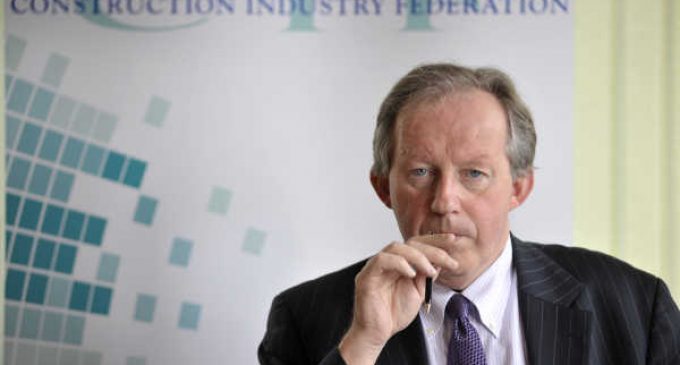“The last war was housing. The war we’re in now is around infrastructure” – CIF

In a speech at the recently-held Sunday Business Post National Infrastructure Summit, CIF Director General Tom Parlon stated that regional imbalances and a prolonged lack of infrastructural investment are significant threats to the Irish economy. He added that we must remain vigilant about the housing market and be concerned over the fact that Galway has only built one estate over 10 houses in the last seven years and that delivering 3,000 homes in Cherrywood has taken a decade. He added: “I genuinely believe that the chronic lack of investment in infrastructure has the potential to damage the economy more in the long-term than the previous property crash.
“I don’t say that lightly. In preparing for an appearance for the Budgetary Oversight Committee I noticed an interesting statement delivered by my friends in ICTU. They said the seeds of our current recovery were sown in the early 2000s when we invested heavily in productive infrastructure. Consider that for a moment.
“A full decade for the impact of the investment in roads, rail, air, schools, and hospitals to filter through the economy and provide the basis for our current recovery.”
The Director General talked about how successive governments have allowed infrastructure investment to drop below 2%. “A decade of underinvestment in infrastructure is about to hit like a storm surge at a time when our population has grown by 30% in one generation and our economy is the fastest growing in the EU.
“Our civil engineering side will tell you that a new road from funding allocation, through planning and procurement, to the inevitable photo-op with the Minister for Transport at the time takes on average 13 years.
“Unlike housing, there’s no fast-tracking infrastructure I’m afraid. Unlike housing, we can’t ignore the problem until there is a sufficient crisis to sting the political system into action. If tomorrow, the Government gave the go ahead to the Cork/Limerick M20, a piece of road that would create an economic corridor to counter-balance Dublin, and save many lives lost in road accidents, it would be five years at least before construction could begin due to planning and procurement.”
Mr Parlon asked delegates to consider what the cost of not having this infrastructure in place when the next inevitable downturn in the economic cycle arrives will be. Long-term investment in infrastructure provides the basis for recovery and if we have a recession within the next decade, he said, it will have been nearly 20 years since we adequately invested in infrastructure. He stated that the historic lack of investment in infrastructure today is making a prolonged recession in our future more likely.







